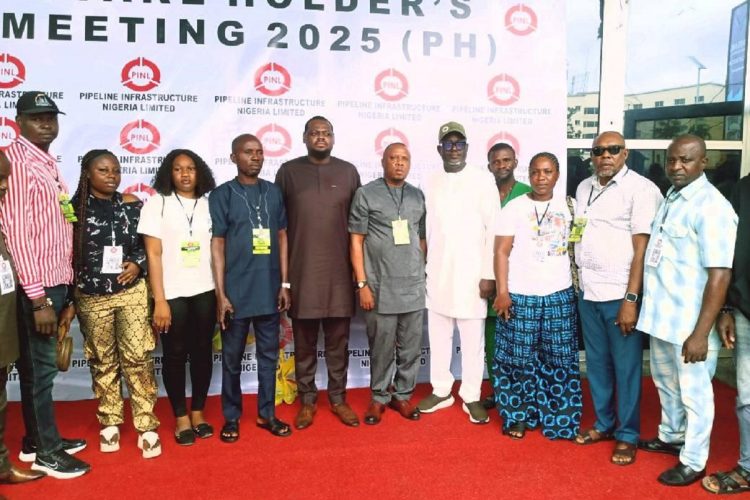Oil prices rise after United States crude inventories fall
July 26, 2018
NDDC plans 69km-road with 22 bridges construction in Delta
July 30, 2018Supporting indigenous participation in Nigeria’s oil and gas industry
The woes of indigenous companies in Nigeria’s oil and gas industry seems not to have abated despite the signing of NOGIC Act on April 22, 2010.
Until the appointment of Dr. Maikanti Baruas the Group Managing Director of the Nigerian National Petroleum Corporation (NNPC), the industry operated merely like a cult where access to information and leadership was like an elephant making effort to pass through the hole in a needle.
Since assumption of office, Baru has worked to eliminate agonies of the government, legislators, workers, and contractors in the oil and gas industry. Hence, no more stories of fuel scarcity, long queues at filling stations disappeared and sanctity instituted in the project award process. The exclusion of indigenous companies from project awards and lack of direction for hydrocarbon exploration to build reserves have also become a forgotten issue.
Today, things are looking up for both the government and other stakeholders. The corporation from a position of loss in financial result has also begun to record significant profit in its operation.
Baru has unflinchingly continued to work for increased participation of indigenous companies in oil and gas and this is demonstrated whenever the opportunity arises.
At the commissioning of the Lagos Midstream Jetty (LMJ) at the Apapa Harbour in Lagos last year, Baru had pledged support for indigenous companies’ participation in the sector.
Earlier in the year, the NNPC had listed 32 indigenous players as part of the 50 companies selected to lift Nigeria’s crude for the export market for a two-year period (2018 – 2020), an improvement on the 18 Nigerian companies approved for the contract between 2017 and 2018.
This was an action which demonstrated in practical terms, NNPC’s commitment under Baru’s leadership to support indigenous companies.
In a statement signed by NNPC Group General Manager, Crude Oil Marketing Division, Mele Kyari, the Nigerian companies involved are Aipec, Masters Energy, MRS, Barbedos, Bono Energy, North West, Oando, Casiva, Cretus, Amazon Energy, Sahara Group, Ocean Bed, Eterna, AMG, Arkleen, Gladius Commodities, Leighton, Levene, Hinstock, AA Rano, Propetrol, Emadeb, Setana, Prudent and Setraco. The others are Shoreline, Ultimate Gas, Voyage, West African Gas, Zitts and Lords and Duke Oil, a subsidiary of NNPC.
ALSO READ: Oil prices rise after United States crude inventories fall
Chevron reduces gas flares by 90%
Chevron – How we’ve been combating oil theft, pipeline vandalism
All contracts are for 30,000 barrels per day except for Duke Oil Limited. The contract is expected to run from July 2018 to June 2020.
The increased participation of indigenous companies in the latest crude oil contracts is a practical proof that the Baru-led NNPC is committed to driving indigenous participation in the oil and gas sector, which will help keep a significant percentage of oil and gas spending in the country which in turn will translate to a significant boost in the economy.
This singular gesture is expected to trigger a lot of developmental strides in the country.
As indigenous players will build more capacity, a lot more oil and gas facilities will also be built, more opportunities will spring up giving birth to more businesses and several jobs created.
With more Nigerian manpower and facilities contributing to the sector, the Gross Domestic Product (GDP) will witness a significant upward surge.
Baru has on numerous occasions consistently voiced his support for building the capacity of indigenous players to make them key players in the sector. While receiving members of the Independent Petroleum Producers Group (IPPG) at the tail end of 2017, he once again reiterated his support for collaborating with indigenous producers in order to grow their capacity and participation in the exploration and production sub-sector while also urging them to tender bids for the marginal fields.
Speaking at an occasion to mark the Egina Manifold Sail Away celebration in Port Harcourt, the NNPC Group Managing Director disclosed that the Corporation will speed up local capacity development within the nation’s oil and gas industry.
Furthermore, Baru noted that NNPC would always support initiatives aimed at domesticating the ample opportunities in the oil and gas industry.
Baru recognizes the need to allow local contractors to carry out range of services like fabrication among others in the industry to boost the contribution of the sector to the economy.
He has at various times also pushed for university-industry partnership to grow local content initiatives.
Recently, at the convocation lecture of the Abubakar Tafawa Balewa University (ABTU), Baru called for a workable and symbiotic partnership between the industry and the nation’s educational institutions with the aim of breeding high skilled manpower, incubation of technology thereby enhancing the Nigerian Content initiative.
NNPC together with International Oil Companies (IOCs) have been able to work out a formula to secure oil pipelines and reasonably curb pipeline vandalism. This was achieved largely by an engaging mechanism where members of the oil-bearing communities are engaged to secure the oil facilities within their domain. This move has engaged the youths in the oil producing communities productively, and in the process empowered them to make income lawfully, curb environmental degradation arising from oil spillage and also ensure there is no downtime or loss of revenue by oil companies, a win-win situation for all parties.
In the downstream retail sector, NNPC’s retail outlets have continued to increase with a network of over 400 stations spread across the country which has helped create several jobs.
Upstream, the NNPC under the leadership of Baru has also embarked on oil search in the inland basins in a move to increase the nation’s oil reserves.
He said with the renewed desire of the federal government to increase the nation’s reserve base and production, NNPC’s Frontier Exploration Services (FES) Division was reinvigorated to champion the exploration activities in the inland basins.
The oil search if successful will generate huge investments, improve local technical and financial capacity while also creating a lot of jobs for the citizenry. Conscious of the supply and demand gap for domestic gas supply, Baru’s administration recently signed agreements for seven Critical Gas Development Projects (7CGDP) to deliver about 3.4 billion standard cubic feet of gas per day (bscfd) to bridge the foreseen medium-term supply gap by 2020 on an accelerated basis.
In promoting merit and identifying with excellence in performance, Baru at the just concluded NOG conference in Abuja identified with a few of the indigenous companies that have made a success of the opportunities presented by NNPC’s domestic capacity development initiatives.
He took a few moments during his walk through the Exhibition hall to identify with and commend the effort and strides of Amazon Energy, an indigenous firm that he knew from its humble beginnings, but that now provided Engineering, Procurement and Construction Services for major projects in the industry, stating that Amazon Energy was an example and a model of NNPC’s objective in its unrelenting quest to ensure the continuous development of local capacity in the Nigerian oil and gas sector.
Contrary to the fear of International Oil Companies (IOCs) about the technical capabilities of indigenous firms, the appointment of Baru by President Muhammadu Buhari has proved a point that the development and growth of technology in a country is only possible with the collaboration of indigenous stakeholders in the public and private sectors of the economy.
In order to secure support for several projects put in place by Dr. Baru to drive in-country development and growth in the sector by indigenous firms, chief executive officers of indigenous firms must help to establish the trust that will encourage the federal government to support NNPC.
This trust will be identified by critics and stakeholders in terms of project completion according to deadline target, quality, transparency, accountability and least cost.
The benefits associated with the recent milestones under Baru will also be sustained if indigenous companies continue to invest in capacity building regardless of oil price volatility in preparation for future opportunities being driven by the NNPC under Baru and his team.
Ibiyemi, an oil and gas analyst and Publisher Nigerian NewsDirect, wrote from Lagos.
Culled From – This Day








